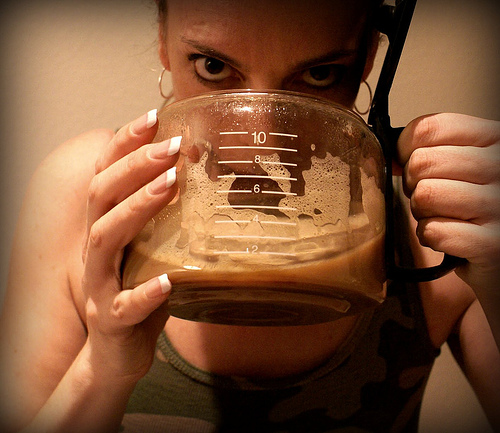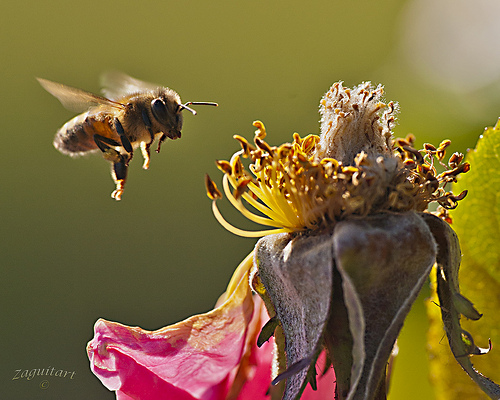
Being brought up in the UK, at home we drank a lot of tea. It was and in many instances still is, the national beverage though being rapidly usurped by coffee. I have always loved my cuppa. I like it strong and always start my day with a fresh brew.
I recently went back to the UK to visit my parents and whilst I was there, I noticed that for some inexplicable reason I was feeling a bit edgy, a bit anxious even. How could this be? I was on holiday enjoying special family time and yet I was a bit “off”. Then I realised that I was, over the course of the day drinking far more tea than usual. Aha! Culprit identified and once dealt with, produced immediate positive results.
Tea, like coffee contains caffeine, the worlds mostly widely consumed psychostimulant. How many people do you know will tell you “my brain doesn’t function until at I’ve had my first coffee”, or “I can’t think, until I’ve had my coffee fix.”
Don’t get me wrong; there is nothing wrong with enjoying tea, coffee, or chocolate. (Though I don’t believe that carbonated drinks with caffeine are good for us in any shape or form for our bodies or our brains.)
And it’s not just humans that so love their caffeine. Honeybees like their caffeine fix too. Yes, that’s right, honeybees. Certain plants (coffea and citrus) produce nectar that contains just a teensy bit of caffeine, but enough to enhance the honeybee’s memory, making them more effective pollinators of those plants. Clever!

There are a number of health benefits to the brain that caffeine provides, but like most things, if we overdo it, we can run into trouble.
I recently became aware of a condition called “Caffeine Use Disorder.” Sounds a bit gruesome but it simply relates to the fact that some people do become dependent on caffeine, to the point where if it is not available, they suffer withdrawal symptoms.
Over the years I have seen a number of people with caffeine withdrawal headache. It can be quite severe and is “cured” by having a caffeine-containing beverage.
Problematic use (that’s a nice psychological sounding term) from overindulging in caffeine can result in jitteriness, agitation, tachycardia (rapid heart rate) and anxiety. It may cause interference with normal functioning and work activities and can be difficult to give up. Research from John Hopkins University reports that more than 50% of regular caffeine consumers report difficulty quitting or reducing their caffeine use.
How much should we be drinking?
Current thinking is no more than 400mg of caffeine a day. That is around 2-3, 8 oz. cups of coffee. So if that is what you would normally have drunk by 10 a.m. perhaps your caffeine consumption needs a review.
By the way, black tea contains almost as much caffeine as a cup of coffee and green tea, also contains a significant amount.
Benefits of caffeine
So as not to leave you in a complete funk, despairing that you are hopelessly addicted to caffeine, there are some good things about it I want to leave you with.
1. Recent research has revealed how drinking coffee after learning helps to consolidate long-term memory.
2. Caffeine stimulates your neurons to fire at a faster rate. So it will certainly help to keep you alert and awake. It competes with adenosine our naturally occurring neurochemical that is released to slow down the rate of neuronal firing and prepare the body for sleep.
3. Research has found that older French ladies (65+) who drink 3 cups of coffee a day preserve their memory for longer. This suggests it could be useful for halting cognitive decline.
4. Research from Harvard through the Nurses Study has shown how caffeine is associated with a reduced risk of depression in women of mean age 63. (Something to look forward to!)
5. A 2012 study published in the NEJM found that older adults (men and women) who drink coffee have an overall lower risk of death (around 10%) than non-coffee drinkers. Which, if any, of the 1000 compounds in coffee that might contribute to this finding is unclear. But hey, this is good news for coffee drinkers.
It seems that caffeine can be good or bad for you depending on how much you consume on a daily basis. As Goldilocks discovered, it’s about not having too much or too little, but just enough.
Is caffeine a bit of an oversized bear in your life? If so why not give Febfast a go.
Refs:
1. Steven E. Meredith, Laura M. Juliano, John R. Hughes, Roland R. Griffiths. Caffeine Use Disorder: A Comprehensive Review and Research Agenda. Journal of Caffeine Research, 2013; 3 (3): 114 DOI: 10.1089/jcr.2013.0016
2. G. A. Wright, D. D. Baker, M. J. Palmer, D. Stabler, J. A. Mustard, E. F. Power, A. M. Borland, P. C. Stevenson. Caffeine in Floral Nectar Enhances a Pollinator’s Memory of Reward. Science, 2013; 339 (6124): 1202 DOI: 10.1126/science.1228806
3. Borota D et al Post-study caffeine administration enhances memory consolidation in humans Nature Neuroscience17, 201–203 (2014) doi:10.1038/nn.3623
4. American Academy of Neurology. “In Women, Caffeine May Protect Memory.” ScienceDaily. ScienceDaily, 7 August 2007. <www.sciencedaily.com/releases/2007/08/070806164552.htm>.
5. M. Lucas, F. Mirzaei, A. Pan, O. I. Okereke, W. C. Willett, E. J. O’Reilly, K. Koenen, A. Ascherio. Coffee, Caffeine, and Risk of Depression Among Women. Archives of Internal Medicine, 2011; 171 (17): 1571 DOI: 10.1001/archinternmed.2011.393
6. Neal D. Freedman, Yikyung Park, Christian C. Abnet, Albert R. Hollenbeck, Rashmi Sinha. Association of Coffee Drinking with Total and Cause-Specific Mortality. New England Journal of Medicine, 2012; 366 (20): 1891 DOI: 10.1056/NEJMoa1112010
Photo Credit: <a href=”http://www.flickr.com/photos/91926020@N07/8610436121/”>zaguitart</a> via <a href=”http://compfight.com”>Compfight</a> <a href=”http://www.flickr.com/help/general/#147″>cc</a>
Photo Credit: <a href=”http://www.flickr.com/photos/96545801@N00/2184863624/”>~*Leah*~</a> via <a href=”http://compfight.com”>Compfight</a> <a href=”http://creativecommons.org/licenses/by-nc-sa/2.0/”>cc</a>


